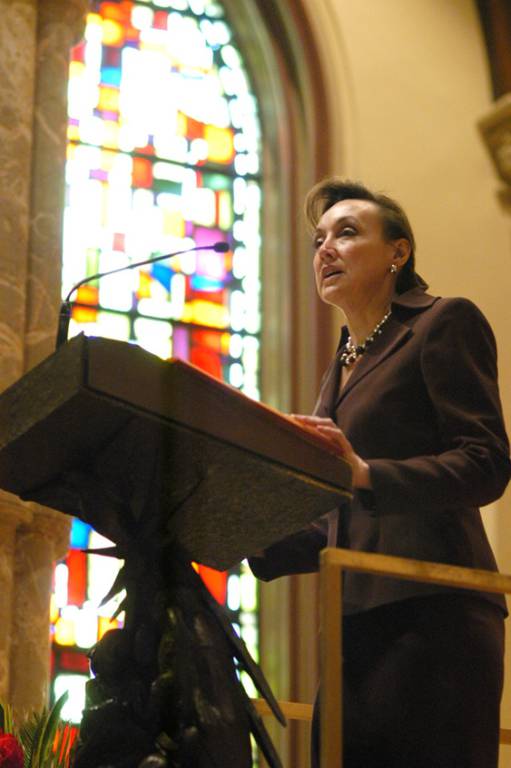Lectors
 |
Lectors/Readers
“The Word of the Lord.” These five words tell us a lot about the ministry of the lector/reader. Whether you are simply interested in liturgical ministry, are thinking about becoming a reader, or have been serving in this ministry for a long time, think for a moment about the words, ‘The Word of the Lord.” When the proclaimer at the ambo finishes the reading, looks up at the assembly and says, “The Word of the Lord” something wonderful has happened. The mystery of God’s interaction with us has been recalled, revived and renewed. That is, we have once again heard God reveal the divine intention to love, redeem and reclaim us. The promise, the covenant, that God has made with us has been written on our hearts again…The unfathomable love God has for us, the love that God is for us, has been made flesh again. |
Who can be a reader?
Any confirmed Catholic may be a reader at our Sunday liturgies. Training is offered throughout the year. To volunteer in this ministry contact the church office at 863-465-3215.
“The Lord has given me a well-trained tongue, that I may speak to the weary a word that will rouse them” – Isaiah 50:4
